Benefits of Using Homemade Hair Masks
Homemade hair masks offer many benefits for your hair and scalp. They are chemical-free, which means less risk of damage or irritation. You can customize them to suit your specific hair needs, like dryness or oiliness.
They are cost-effective and use natural ingredients easily found at home. This makes them budget-friendly while still being effective. Homemade masks nourish your hair deeply, helping to repair damage and restore health.
Using natural ingredients can enhance your hair’s strength, shine, and manageability. Vitamins and nutrients from fresh ingredients penetrate better into hair shafts. This improves moisture, reduces frizz, and promotes healthier strands.
Another benefit is the control over ingredients. You avoid artificial additives and focus only on nourishing elements. This is especially helpful for people with sensitive skin or scalp issues.
Over time, regular use of homemade hair masks can improve overall hair texture. They help reduce split ends, control dandruff, and boost growth. With consistent application, your hair becomes healthier, softer, and more vibrant.
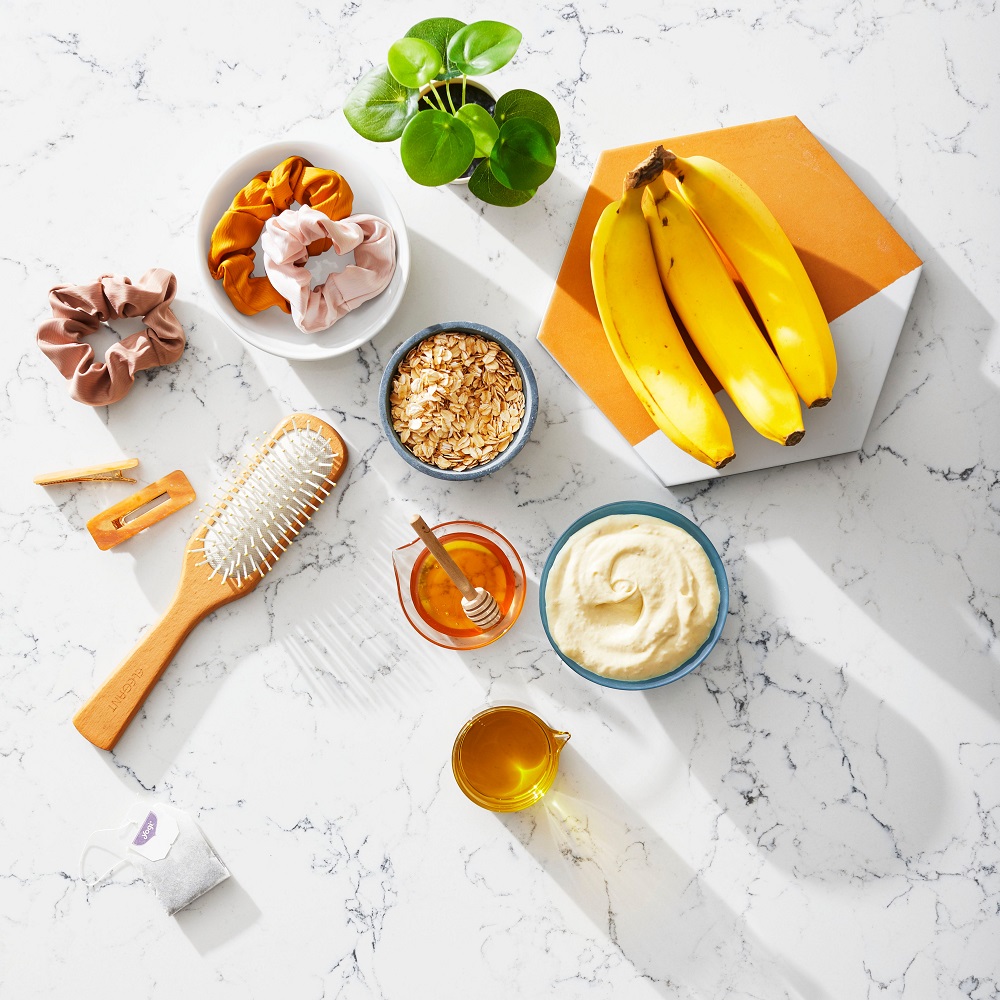
Essential Ingredients for Hair Masks
Homemade hair masks work best with natural ingredients. These ingredients target specific hair needs and concerns. Below are some essential components to consider for your DIY hair masks:
1. Oils for Deep Moisture
- Coconut Oil: Adds moisture, reduces frizz, and strengthens hair.
- Argan Oil: Repairs damaged hair and improves its elasticity.
- Olive Oil: Softens hair while promoting scalp health.
2. Fruits for Nourishment
- Bananas: Help reduce dandruff and add shine.
- Avocado: Rich in healthy fats, it hydrates and repairs.
- Strawberries: Control oil production and improve scalp health.
3. Dairy Products for Protein Boost
- Yogurt: Reduces dryness and soothes the scalp.
- Milk: Adds softness and restores shine.
4. Natural Liquids
- Honey: Provides moisture and fights scalp infections.
- Aloe Vera Gel: Soothes irritation and promotes hair growth.
- Apple Cider Vinegar: Balances scalp pH and adds shine.
5. Eggs for Strength
Eggs are rich in protein, which helps in repairing damaged strands. Use egg white for oily hair, and the yolk for dry hair.
6. Essential Oils for Added Benefits
- Tea Tree Oil: Treats dandruff and prevents scalp infections.
- Lavender Oil: Promotes hair growth and soothes the scalp.
By combining these natural ingredients, you can create effective and nourishing homemade hair masks tailored to your specific hair needs.
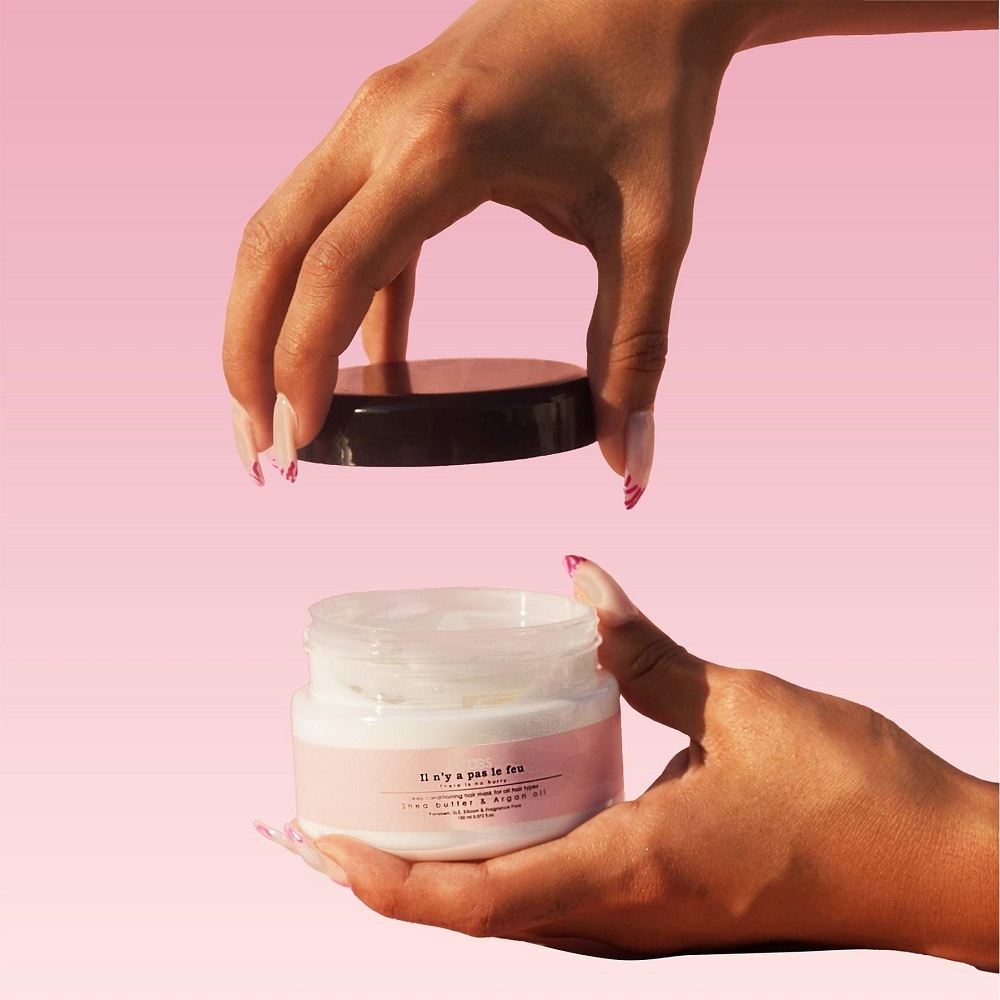
How to Choose the Right Hair Mask for Your Hair Type
Selecting the right homemade hair mask is important for addressing specific hair concerns effectively. Consider your hair type and problems to customize the mask for best results.
Identify Your Hair Type
- Dry Hair: Needs hydration and repair. Look for ingredients like coconut oil and avocado.
- Oily Hair: Requires oil control. Use ingredients like strawberries or apple cider vinegar.
- Normal Hair: Focus on maintenance. Balanced options like honey and yogurt work well.
- Curly Hair: Needs moisture and frizz control. Include ingredients like olive oil and aloe vera.
Pinpoint Your Main Concern
- Hair Damage: Pick high-protein options like eggs or yogurt to strengthen strands.
- Dandruff: Choose scalp-soothing ingredients like tea tree oil or aloe vera.
- Hair Growth: Opt for masks with nutrients like lavender oil and bananas to boost growth.
- Frizz Reduction: Use hydrating options like coconut oil and honey for smoother hair.
Test Your Mask Before Use
Always test a small amount on your skin. This ensures no allergic reactions or irritation.
Tailor Your Ingredients
Mix ingredients that work for your hair and concerns. Avoid unnecessary additives or chemicals.
Choosing the right hair mask ensures optimal care and boosts your hair’s health and beauty.
DIY Hair Masks for Dry and Damaged Hair
Dry and damaged hair needs extra care to regain strength and moisture. Homemade hair masks work wonders by using nourishing ingredients tailored to repair and hydrate your locks. Below are several effective DIY recipes to help restore your hair’s health.
Coconut Oil and Honey Mask
- Mix 2 tablespoons of coconut oil and 1 tablespoon of honey.
- Apply the mixture evenly to your hair and scalp.
- Leave on for 20 minutes, then rinse with warm water.
- Benefits: Deeply hydrates, reduces frizz, and enhances softness.
Avocado and Yogurt Mask
- Mash half an avocado and mix it with 2 tablespoons of yogurt.
- Spread the mask from roots to tips of your hair.
- Allow it to sit for 30 minutes before rinsing thoroughly.
- Benefits: Repairs damage and restores moisture with healthy fats and proteins.
Egg Yolk and Olive Oil Mask
- Combine 1 egg yolk and 2 tablespoons of olive oil.
- Apply the mask to your hair, focusing on damaged areas.
- Leave it on for 20 minutes and rinse with cool water.
- Benefits: Nourishes strands and strengthens hair structure.
Banana and Almond Oil Mask
- Blend 1 ripe banana and 1 tablespoon of almond oil to create a smooth paste.
- Coat your hair with the mixture and let it sit for 25 minutes.
- Wash it off with lukewarm water.
- Benefits: Adds shine, reduces breakage, and nourishes dry ends.
Aloe Vera and Argan Oil Mask
- Mix 3 tablespoons of fresh aloe vera gel with 1 tablespoon of argan oil.
- Massage onto your hair and scalp.
- Leave on for 20 minutes, then rinse clean.
- Benefits: Soothes the scalp while repairing damaged strands.
Using these homemade hair masks consistently can rejuvenate your hair with lasting results. They deeply hydrate and repair damage without the use of harsh chemicals.
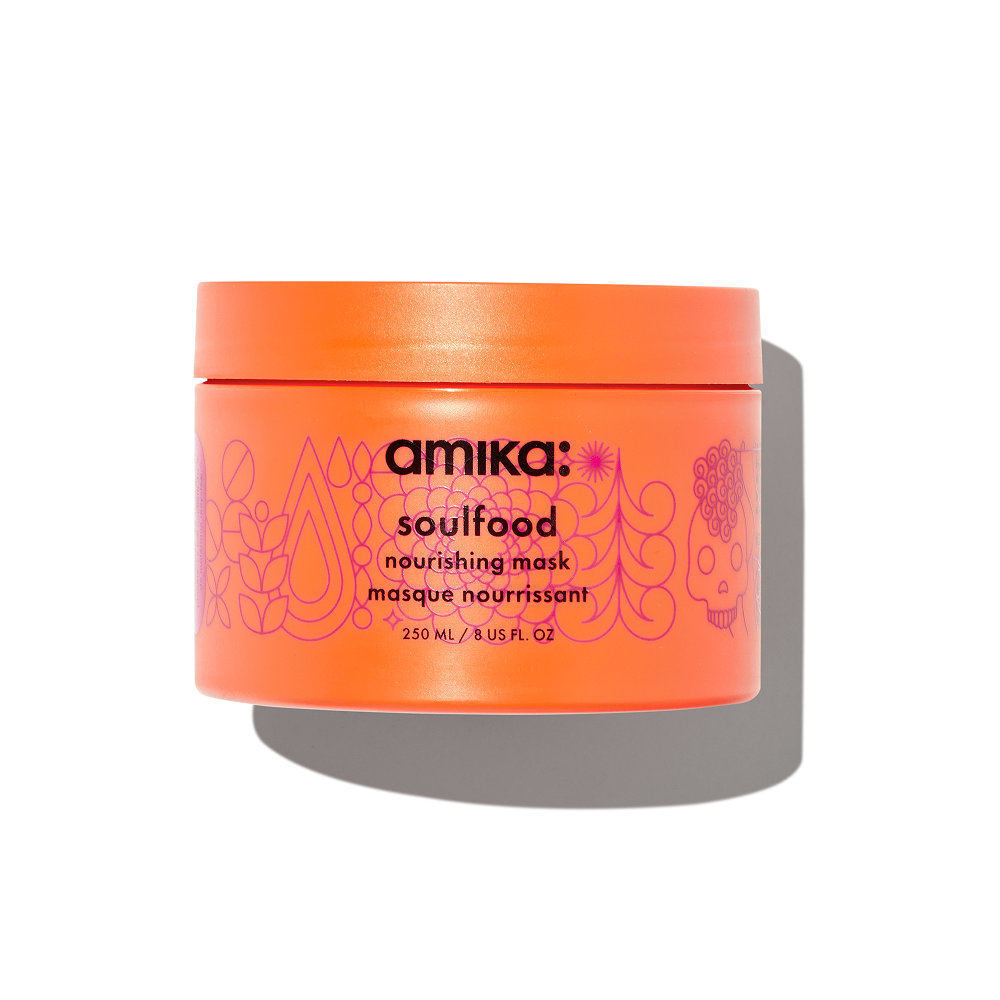
Nourishing Hair Masks for Oily Hair
Oily hair requires care and balance to stay healthy. Homemade hair masks can help regulate grease while nourishing your scalp and strands. Below are some simple yet effective DIY masks for oily hair.
Strawberry and Yogurt Mask
- Mash 3 strawberries and mix with 2 tablespoons of yogurt.
- Apply evenly to your scalp and hair.
- Leave on for 20 minutes and rinse with cool water.
- Benefits: Reduces excessive oil and balances scalp health.
Apple Cider Vinegar and Aloe Vera Mask
- Combine 2 tablespoons of apple cider vinegar with 3 tablespoons of fresh aloe vera gel.
- Massage onto your scalp and hair roots.
- Let it sit for 15 minutes and rinse thoroughly.
- Benefits: Balances scalp pH while removing grease and build-up.
Lemon Juice and Honey Mask
- Mix the juice of half a lemon with 1 tablespoon of honey.
- Apply to your scalp and hair strands.
- Leave it for 15 minutes and rinse with lukewarm water.
- Benefits: Controls oil production and adds shine to your hair.
Egg White and Tea Tree Oil Mask
- Beat 1 egg white and add 3 drops of tea tree oil.
- Spread it on your scalp, avoiding the length of your hair.
- Leave it for 20 minutes and rinse with cool water.
- Benefits: Cleanses the scalp, controls oil, and prevents dandruff.
Baking Soda and Water Mask
- Mix 2 tablespoons of baking soda with water to create a paste.
- Apply directly to your scalp and hair roots.
- Leave it for 10 minutes and rinse thoroughly.
- Benefits: Absorbs excess oil and removes impurities from hair.
Using these masks weekly can balance oil levels and keep oily hair healthier over time. Always test a small portion for sensitivity before full application.
Homemade Hair Masks for Hair Growth
Hair growth requires proper nourishment and stimulation. Homemade hair masks use natural ingredients that can help. These masks provide vitamins, minerals, and proteins to strengthen hair roots and promote growth. Below are some effective DIY recipes to boost your hair growth naturally.
Banana and Egg Mask
- Mash 1 ripe banana and mix it with 1 egg.
- Apply the mixture to your scalp and hair.
- Leave it on for 25 minutes, then rinse thoroughly.
- Benefits: Strengthens hair roots and improves elasticity, helping hair grow faster.
Aloe Vera and Coconut Oil Mask
- Combine 3 tablespoons of fresh aloe vera gel with 2 tablespoons of coconut oil.
- Apply to your scalp, massaging gently for a few minutes.
- Let it sit for 30 minutes before rinsing.
- Benefits: Promotes blood circulation to the scalp while hydrating the hair strands.
Castor Oil and Honey Mask
- Mix 2 tablespoons of castor oil with 1 tablespoon of honey.
- Apply the mask to your scalp and hair roots.
- Leave it on for 30 minutes and wash off with lukewarm water.
- Benefits: Castor oil boosts growth, while honey nourishes deeply.
Milk and Fenugreek Powder Mask
- Combine 2 tablespoons of milk and 1 tablespoon of fenugreek powder.
- Apply the paste evenly to your scalp and hair.
- Leave it for 20 minutes and rinse well.
- Benefits: Strengthens hair follicles and reduces hair loss.
Onion Juice and Olive Oil Mask
- Mix 2 tablespoons of onion juice and 1 tablespoon of olive oil.
- Massage the mask onto your scalp.
- Leave it for 20 minutes and rinse with mild shampoo.
- Benefits: Improves scalp health and stimulates hair growth.
Using these masks regularly can improve hair growth naturally. Always test a small amount to avoid irritation.
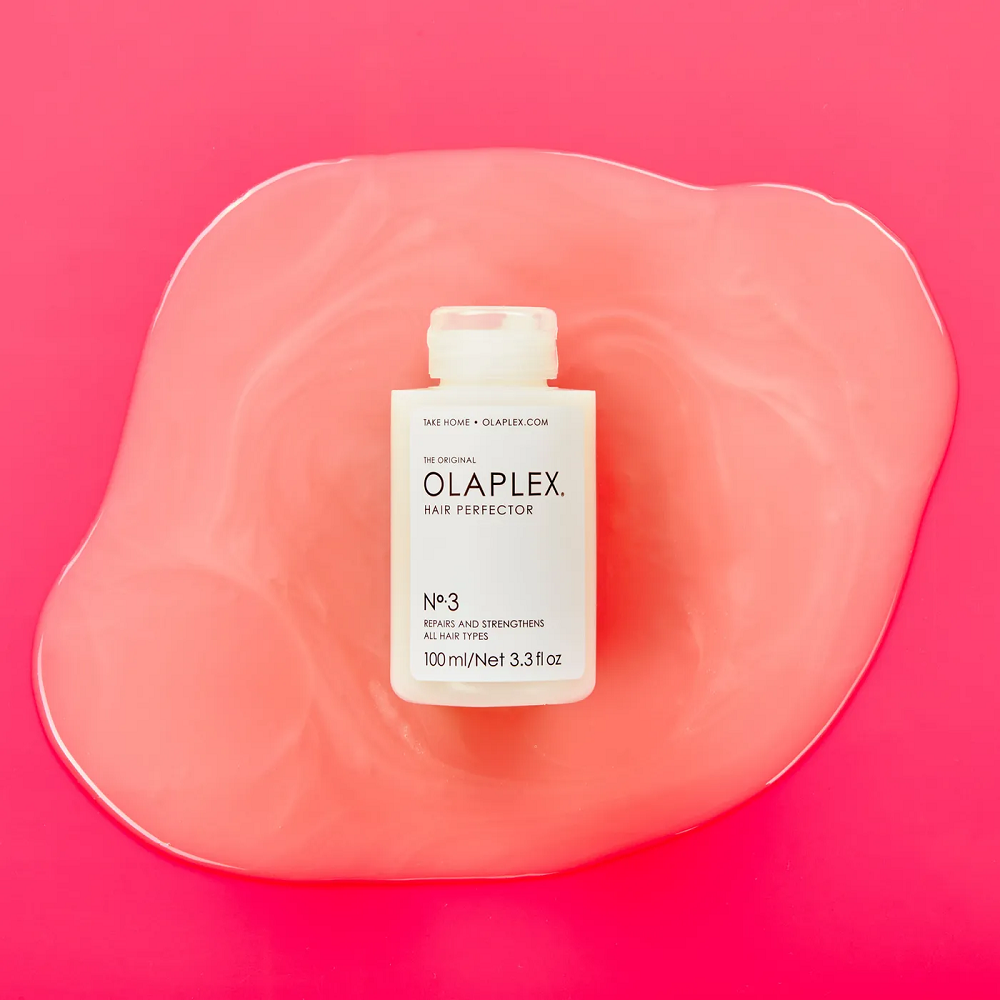
Tips for Applying and Rinsing Hair Masks Effectively
Proper application and rinsing are key to getting the best out of homemade hair masks. Follow these tips for optimal results and to make the process easier and more effective:
1. Start with Clean Hair
Ensure your hair is clean before applying a mask. This allows the ingredients to penetrate deeply. Use a gentle shampoo to remove dirt and product buildup.
2. Apply to Damp Hair
Slightly damp hair helps spread the mask evenly. Avoid applying to soaking wet or dry hair. Pat your hair with a towel to remove excess water before starting.
3. Section Your Hair
Divide your hair into sections for even application. Work on one section at a time for thorough coverage. This is especially helpful for thick or long hair.
4. Use Your Fingers or a Brush
Apply with your fingers or a dye brush. Start from the roots and work toward the tips. Distribute the mask evenly for better results.
5. Massage the Scalp
Gentle scalp massaging boosts circulation and maximizes mask benefits. Focus on your scalp if the mask targets dandruff or growth.
6. Cover Your Hair
Use a shower cap or plastic wrap to cover your hair. This traps heat, helping the mask penetrate better. Leave the mask on for the recommended time.
7. Rinse Carefully
Rinse thoroughly with lukewarm water to remove all residue. Cool water can seal moisture after washing. Avoid hot water as it may strip natural oils.
8. Shampoo If Needed
Some masks, like those with oil or eggs, may require shampooing afterward. Use a mild shampoo to avoid over-drying.
9. Avoid Overusing Masks
Limit using hair masks to once or twice a week. Overuse can make hair greasy or weighed down.
These steps ensure your homemade hair masks work effectively, leaving your hair healthy and nourished.
Common Mistakes to Avoid When Using Hair Masks
Homemade hair masks offer great benefits but require proper usage for effective results. Avoid these common mistakes to ensure your efforts pay off:
1. Using the Wrong Ingredients
Choose ingredients suitable for your hair type and problem:
- Dry Hair: Use moisturizing options like coconut oil and honey.
- Oily Hair: Opt for clarifying ingredients like lemon or apple cider vinegar.
- Sensitive Scalps: Avoid strong irritants like raw onion juice or excessive essential oils.
2. Applying to Dirty Hair
Dirty hair prevents masks from penetrating effectively.
- Solution: Wash your hair with a mild shampoo first for maximum absorption.
3. Neglecting Your Hair Roots
The hair roots and scalp often get ignored.
- Solution: Always start applying the mask near the roots and massage thoroughly.
4. Leaving It On for Too Long
Overexposure can irritate the scalp or weigh hair down.
- Solution: Follow the recommended time, usually 15–30 minutes for most masks.
5. Using Excess Product
Using too much mask can make rinsing difficult and hair greasy.
- Solution: Apply only a thin, even layer based on your hair’s length.
6. Forgetting to Test for Allergies
Homemade masks may contain allergens.
- Solution: Do a patch test on your skin before full application.
7. Overusing Hair Masks
Using masks too often can make hair limp or oily.
- Solution: Limit usage to once or twice a week.
8. Rinsing with Hot Water
Hot water strips natural oils and dries out hair.
- Solution: Use lukewarm or cool water for rinsing.
9. Skipping Post-Mask Care
Masks need follow-up care for optimal benefits.
- Solution: Use a light conditioner or follow your regular care routine.
By avoiding these mistakes, you maximize the benefits of your homemade hair masks. Practice consistency and proper techniques for healthier, more vibrant hair.
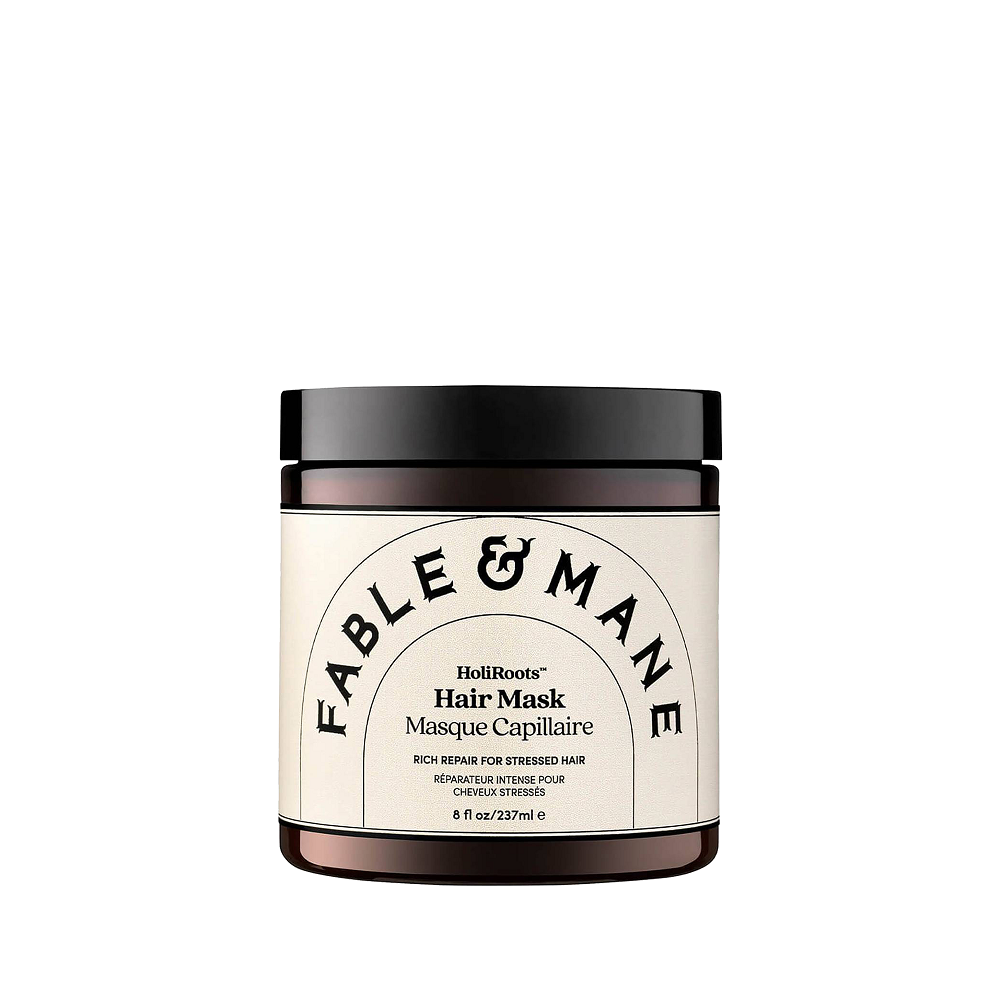
Embrace Your Hair Journey
Recap of Essential Hair Mask Ingredients
Incorporating homemade hair masks into your routine can transform your hair care experience. Understanding the essential ingredients is key to addressing your specific hair needs. From nourishing oils to cleansing clay, each ingredient serves a unique purpose in promoting hair health.
The Reward of Consistent Care
Consistent application of hair masks will yield noticeable improvements in health and appearance. By developing a personalized hair care routine, you can ensure your locks remain beautiful and manageable. As you embrace this journey, remember that each treatment contributes to your overall hair health.
Celebrate Your Progress
Ultimately, celebrate your unique hair journey. Your dedication to care and improvement is something to embrace, allowing you to share in the joy and satisfaction of beautiful hair. As you explore the world of homemade hair masks, relish the opportunity to create, learn, and express yourself through hair care.
